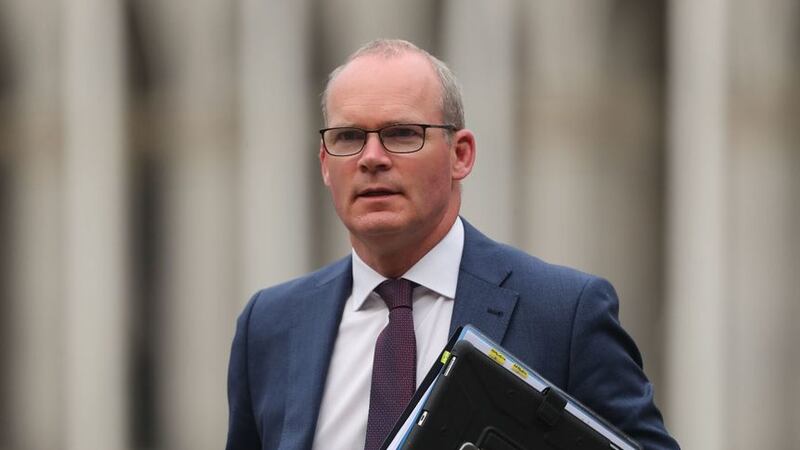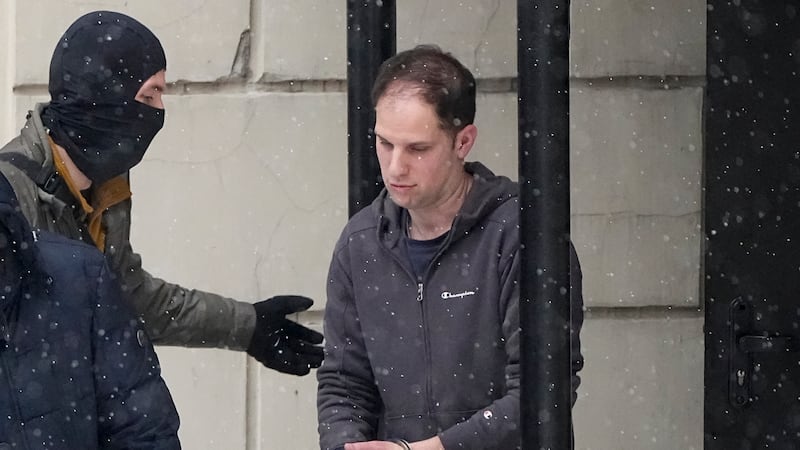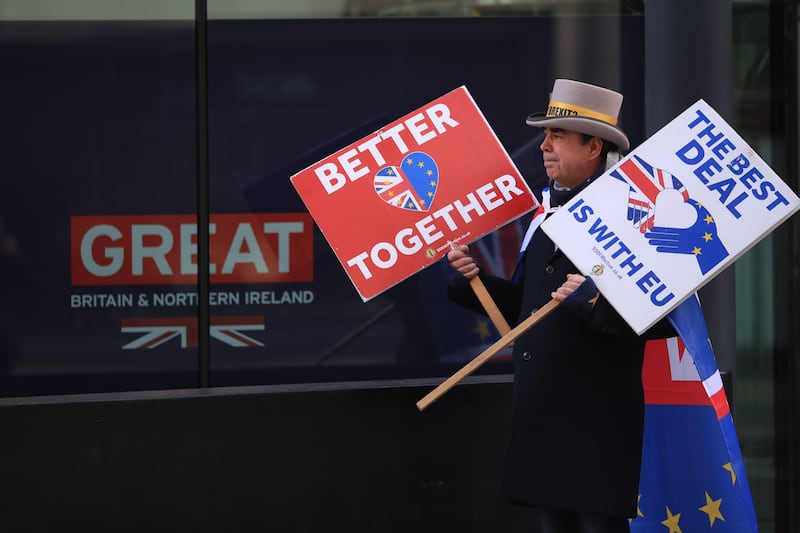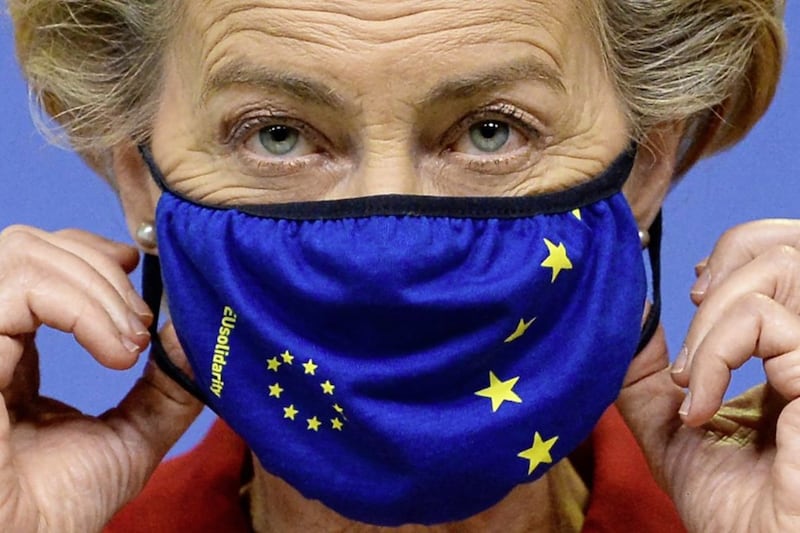The Northern Ireland Protocol must be implemented in full to give the region's businesses the certainty they crave, Simon Coveney has said.
The Republic of Ireland's minister for foreign affairs stressed the importance of operating the protocol in "good faith" as he met with the leaders of Stormont's four main pro-EU parties.
Sinn Féin vice president Michelle O'Neill, SDLP leader Colum Eastwood, Alliance leader Naomi Long and Green Party NI leader Clare Bailey held talks with Mr Coveney in Dublin.
The engagement came amid the British Government's controversial bid to override elements of the Northern Ireland Protocol through domestic legislation at Westminster.
The Internal Market Bill runs contrary to elements of the protocol around the application of EU state aid rules in Northern Ireland and on the requirement for exit summary declarations for goods moving from the region to Great Britain.
Another aspect of the protocol - on the need to collect tariffs on goods entering NI from GB deemed "at risk" of onward transport to the Republic - is set to be overridden in further domestic legislation tabled by the government.
At today's meeting, Mr Coveney outlined the Irish Government's "very real concern" about the move by its UK counterpart.
Afterwards, the minister said: "Since the beginning of the Brexit process, Ireland and the EU have been committed to finding a solution which works for the people of Northern Ireland and for the island as a whole.
"The protocol does this. There was strong agreement this morning on the vital importance of implementing the protocol in full and in good faith.
"We also noted the particular challenges facing business in Northern Ireland.
"They need certainty, and this needs to be delivered through full implementation of the protocol."
Meanwhile, the PSNI chief constable has warned that the Brexit finishing line is approaching quickly with outstanding funding issues remaining.
Senior members of the force said they enjoyed close relations with the Garda but that there had been some “political sensitivities” around direct negotiations and transfer of information.
Simon Byrne said: “We are still three months out from the finish line.
“All we know is that finish line is coming quickly and there are details to tidy up.”
Mr Byrne said extra funding was still needed for Brexit.
Nearly 200 of the new officers recruited for neighbourhood duties have been earmarked for border areas, he said.
“Criminals will exploit any gaps, in the opportunity to raise money – differences in tariffs, differences in the Common Travel Area – we are alert to them, they could be exploited,” Mr Byrne added.
He told Stormont’s justice committee: “We have focused more effort on the haulage industry and are proposing to invest different operational teams to see can we step up in relation to policing of hauliers and increasing the policing of the road network to make sure we learn some of the lessons of the last 12 months, and where we can use intelligence to intercept, interdict and put criminals on the back foot.”
After the meeting, Ms O'Neill urged the Irish government to challenge Britain on its behaviour.
"It's very clear that we need all island protections, it's very clear that we need the Irish government and EU side to stand up against the British government who are recklessly attempting to throw the Good Friday Agreement in the bin," she said.
"Who are recklessly and arrogantly purporting to say they are going to undermine an international treaty.
"That is not acceptable by anybody's standards."
Mr Eastwood, who described the discussions with Mr Coveney as "positive", said the Internal Market Bill was an act of "extraordinary bad faith" by the UK government.
"Even if you accept the suggestion that it is simply a negotiating tactic, it serves to fundamentally undermine trust between the parties," he said.
"The British Government needs to wise up, commit to honouring its obligations under the Withdrawal Agreement and Ireland protocol and then return to negotiations in good faith.
"The first step in that process is to withdraw this deeply damaging bill."
Justice Minister Naomi Long accused the British Government of "provocative and disruptive behaviour".
She said the impasse went to the core of Northern Ireland's ability to co-operate on justice and security issues.
"For that, the future security partnership must be agreed and that requires a trade deal to be done," she said.
"There is much at stake - businesses need certainty, the Executive needs clarity and people's security needs to be protected."
Mrs Long added: "People need to focus on delivering a deal and should now leave the theatrics to one side."








